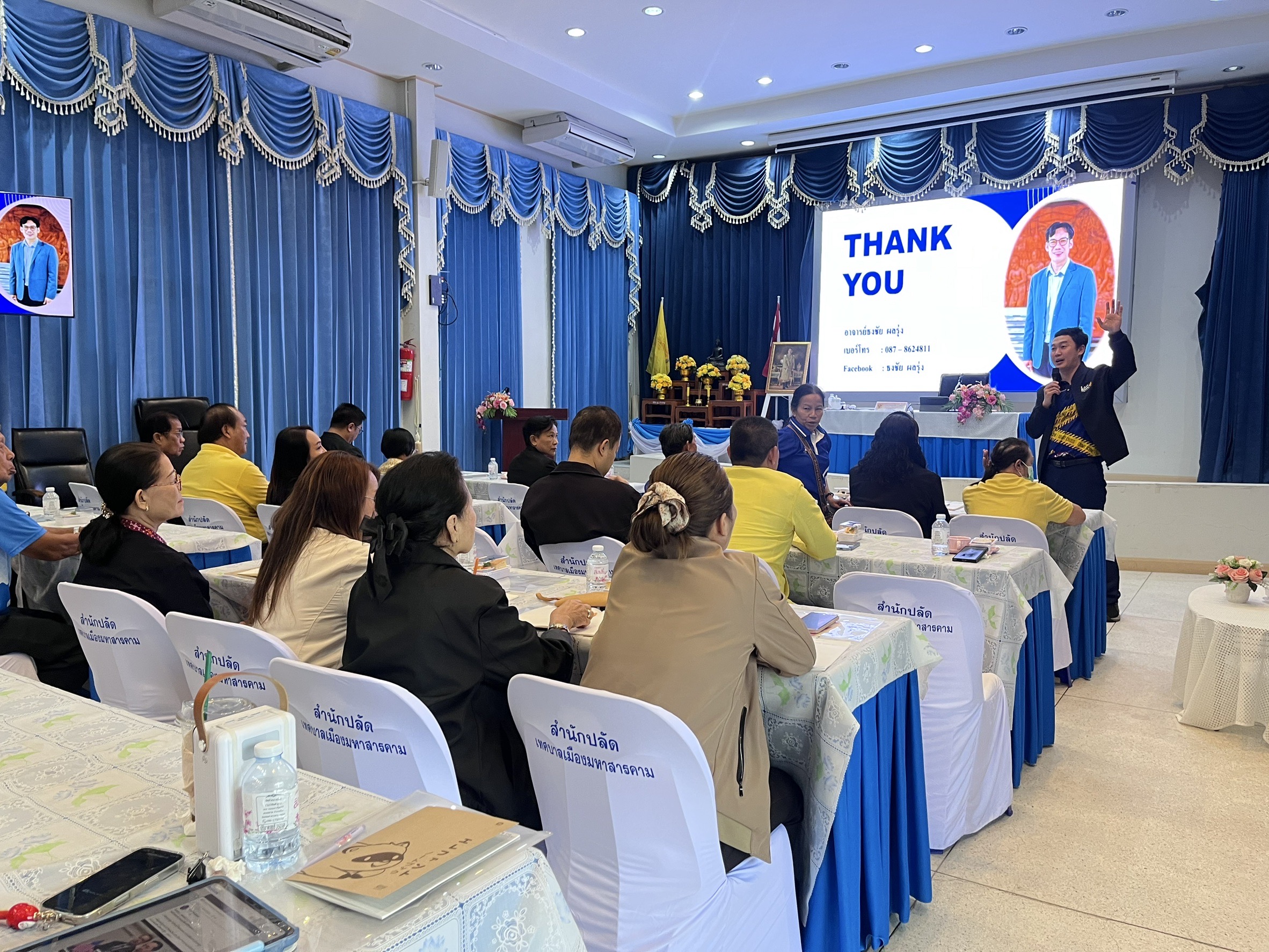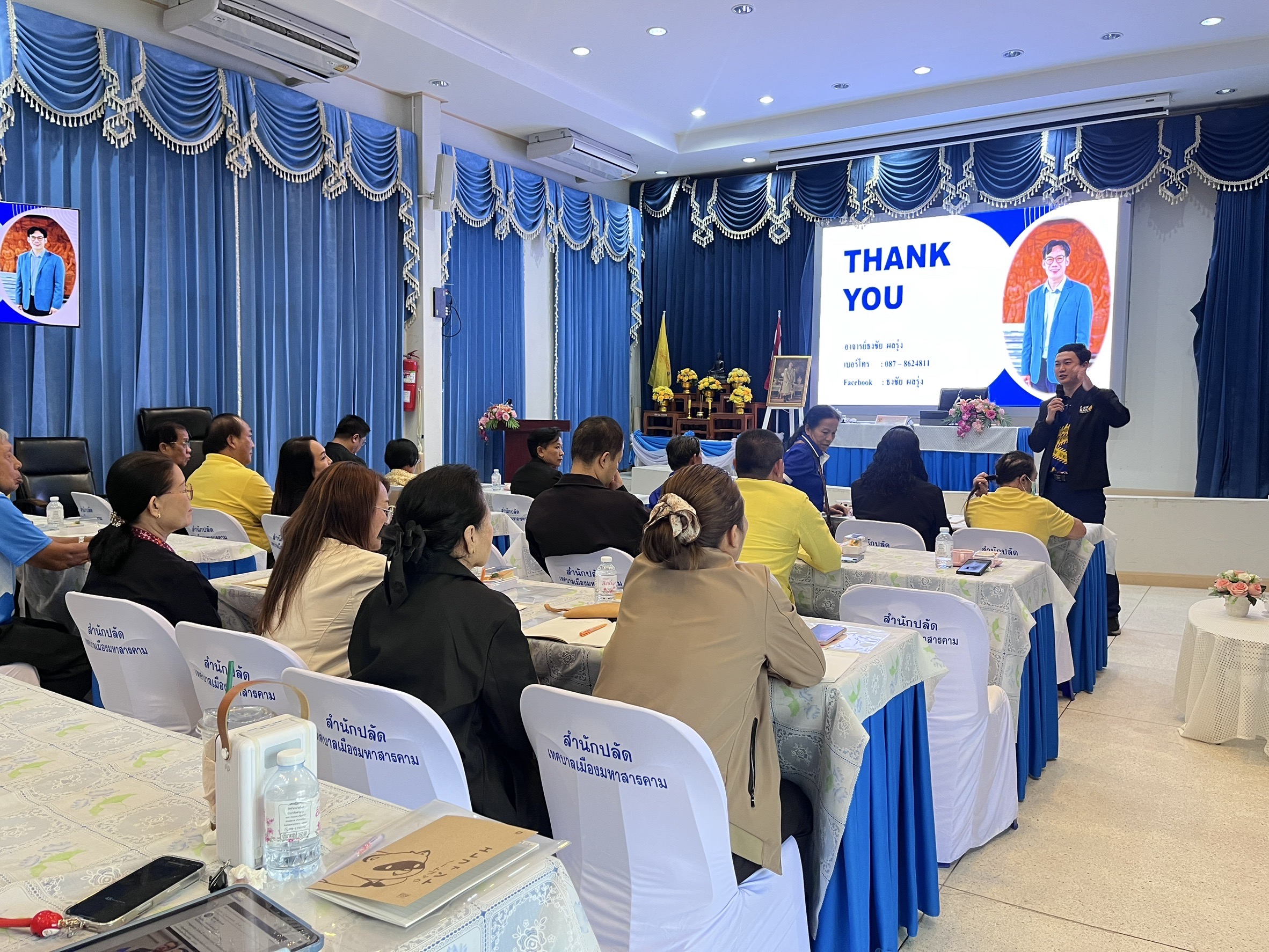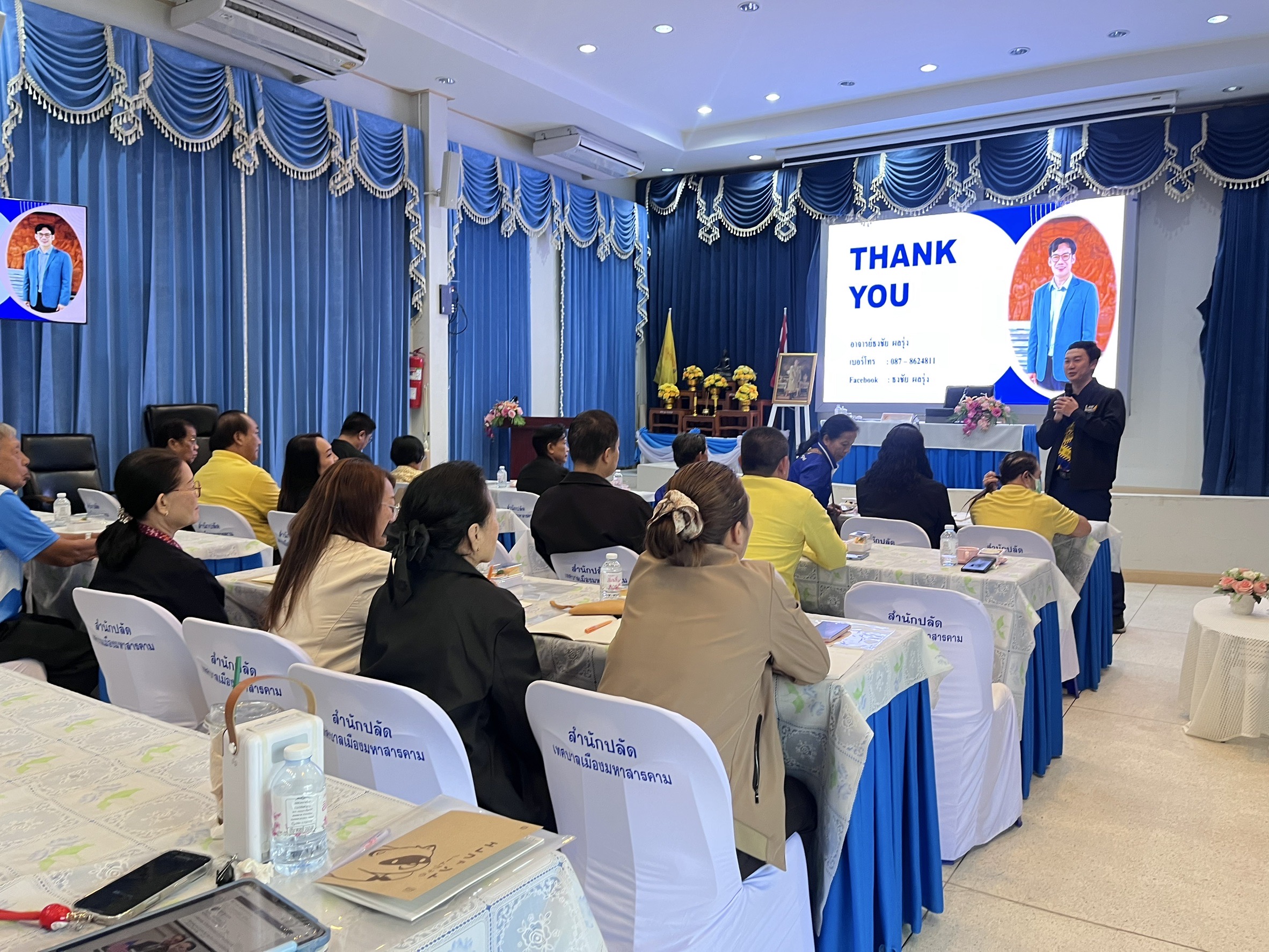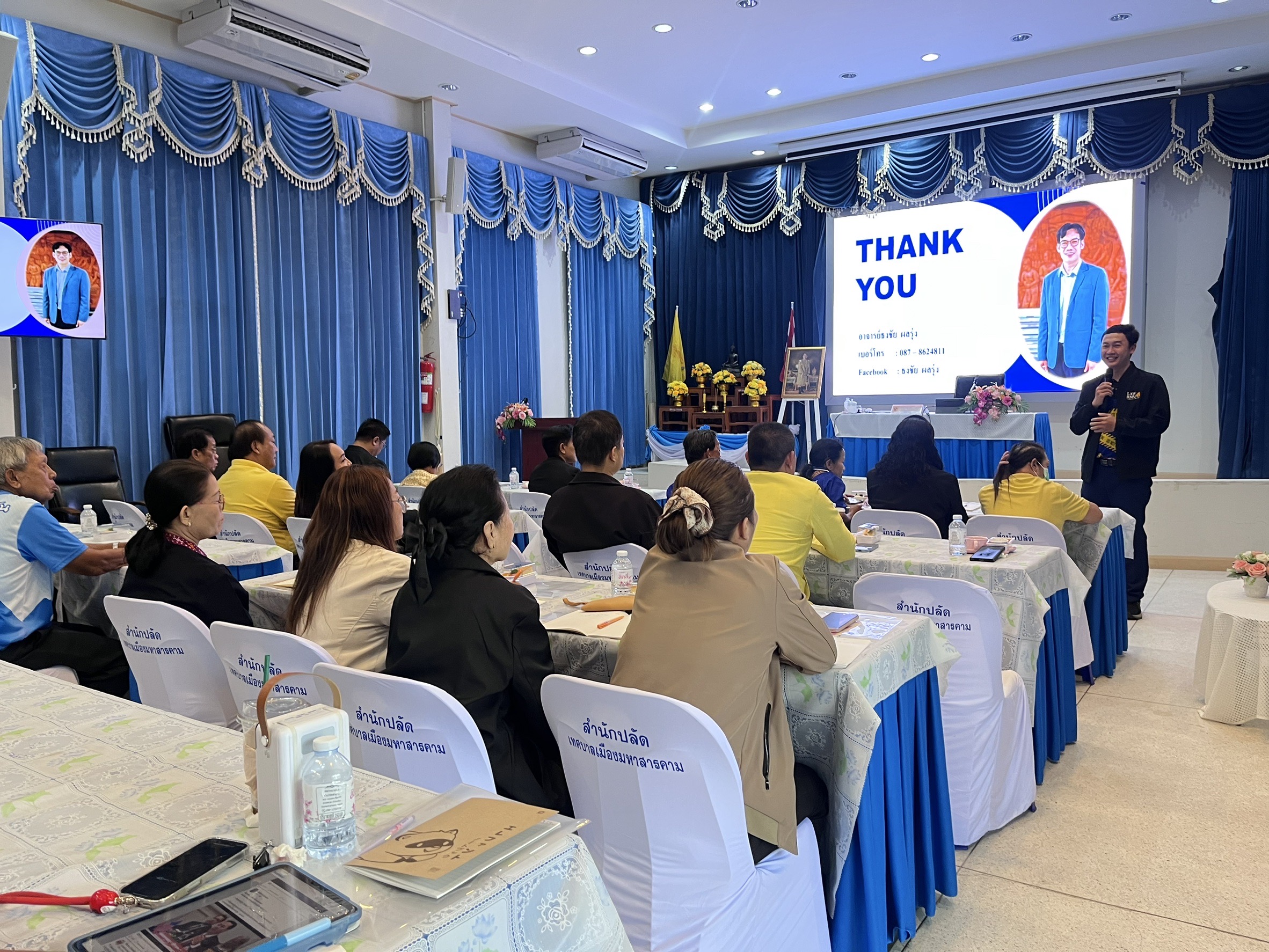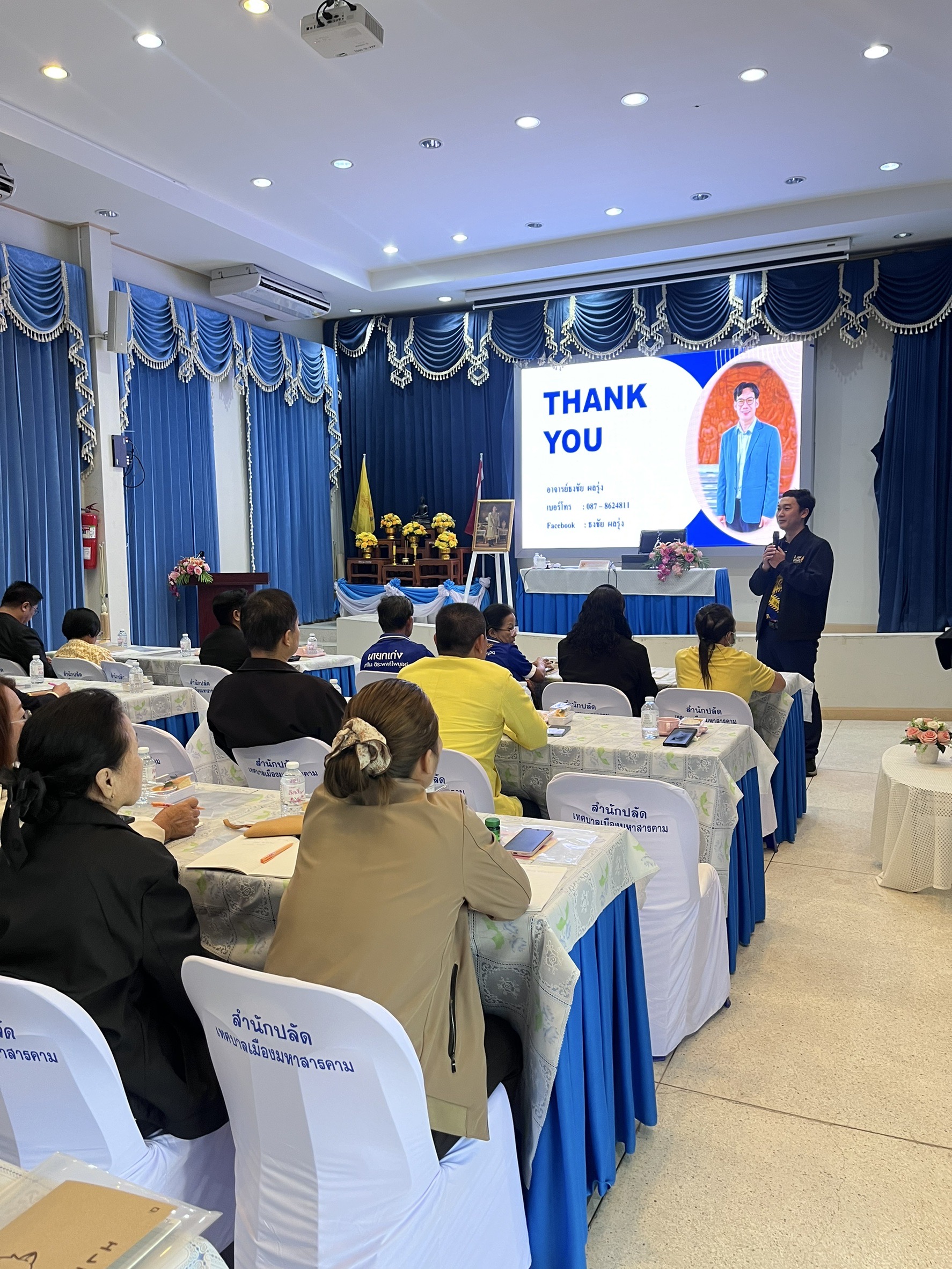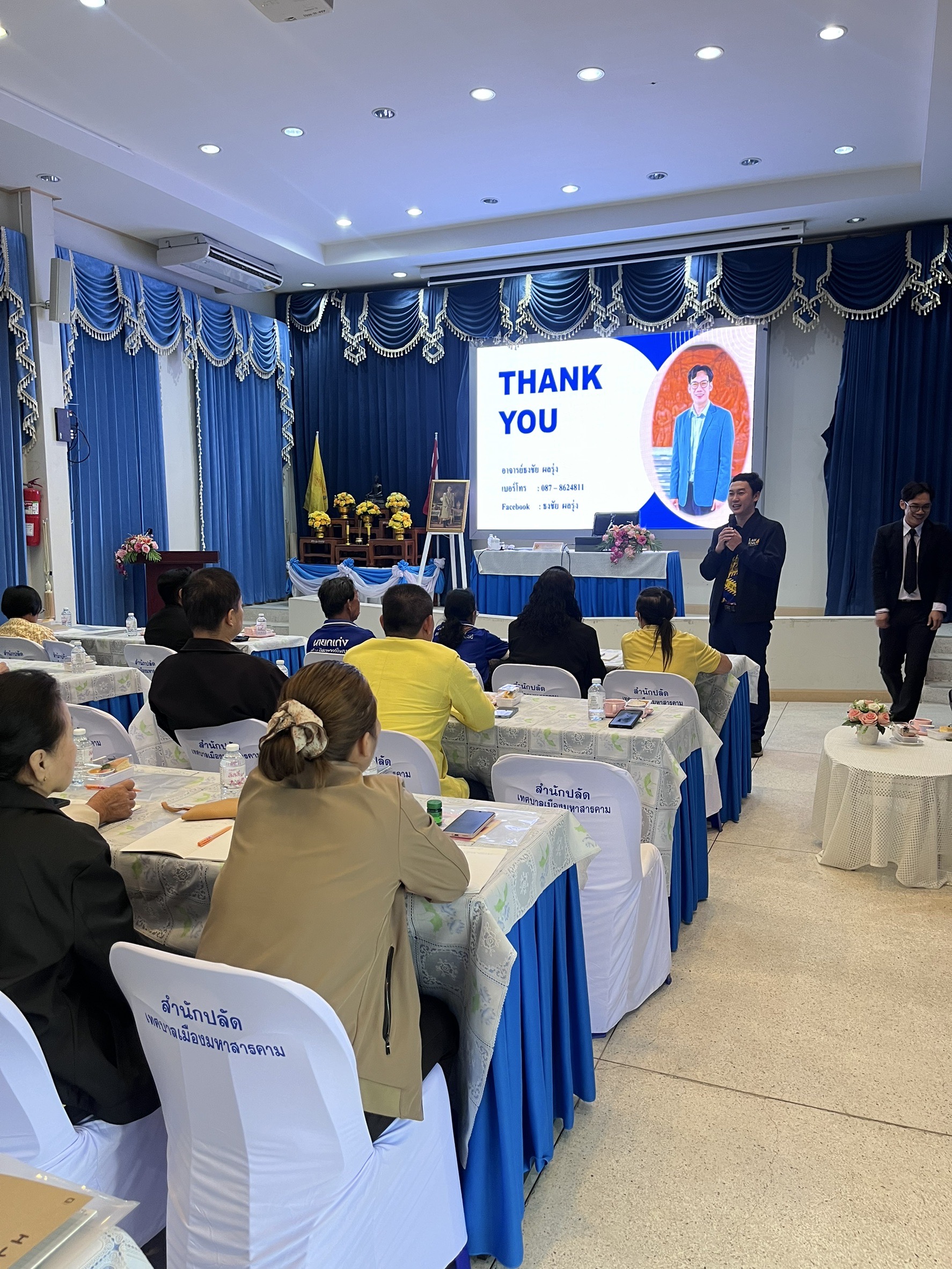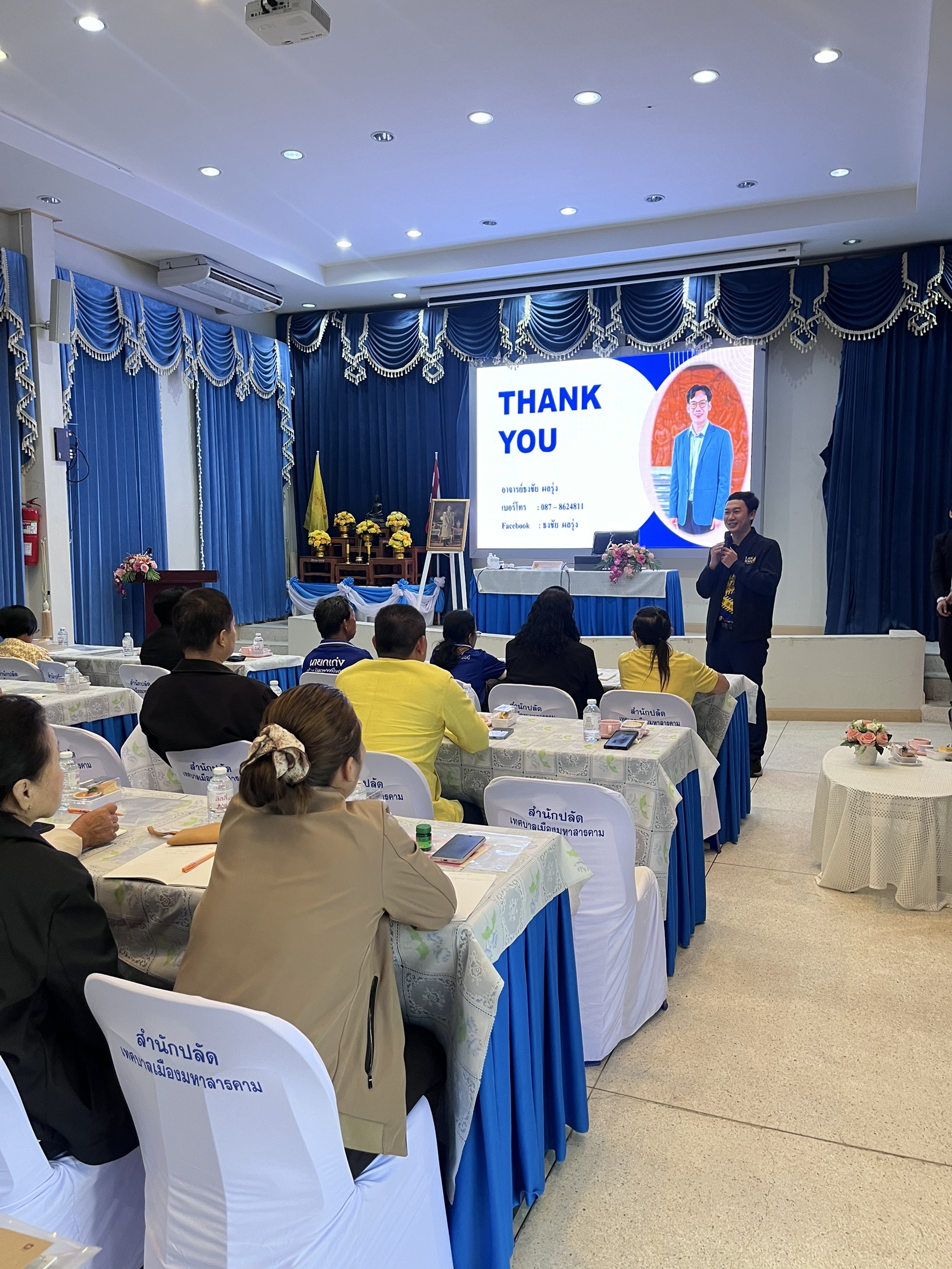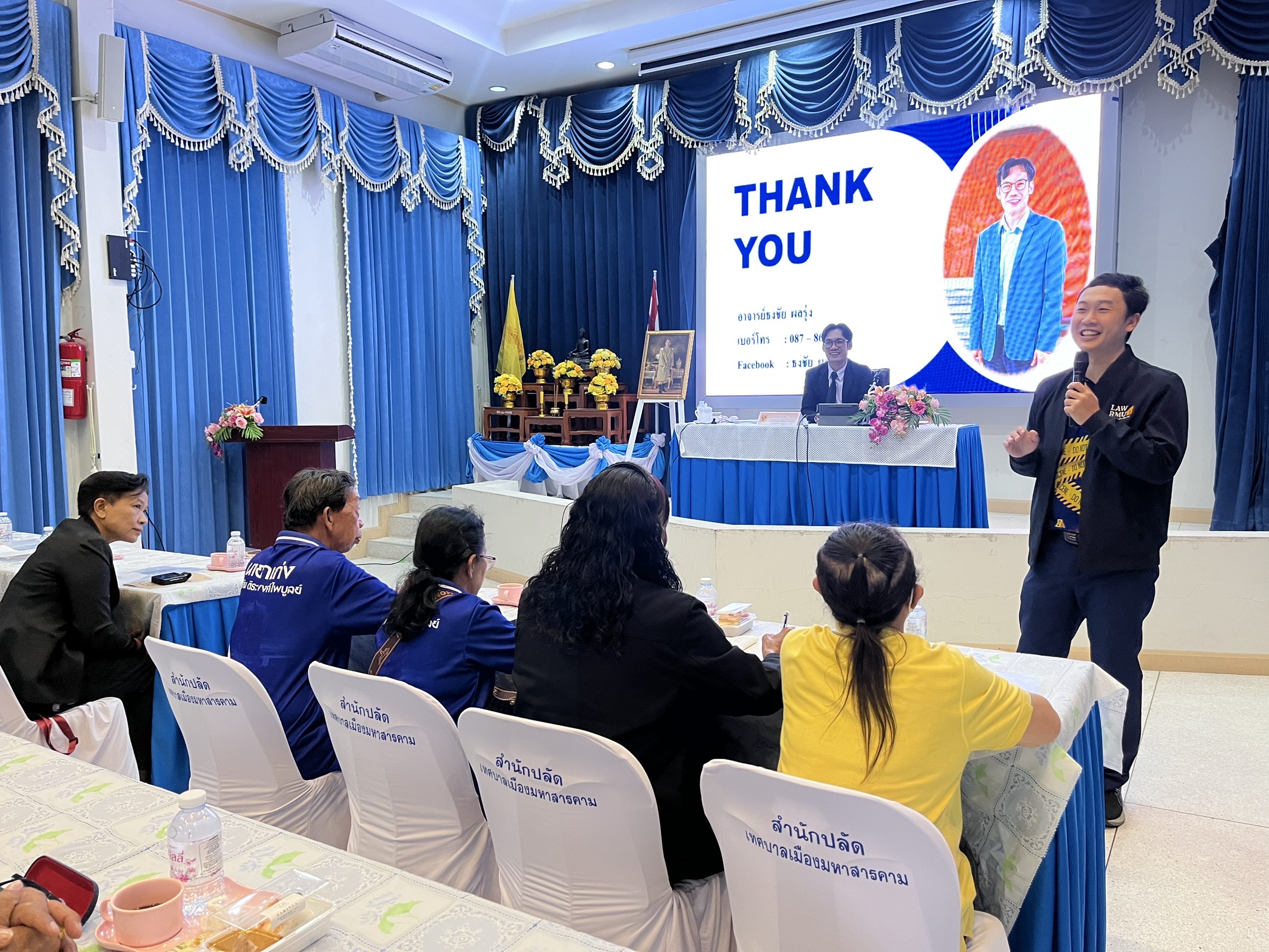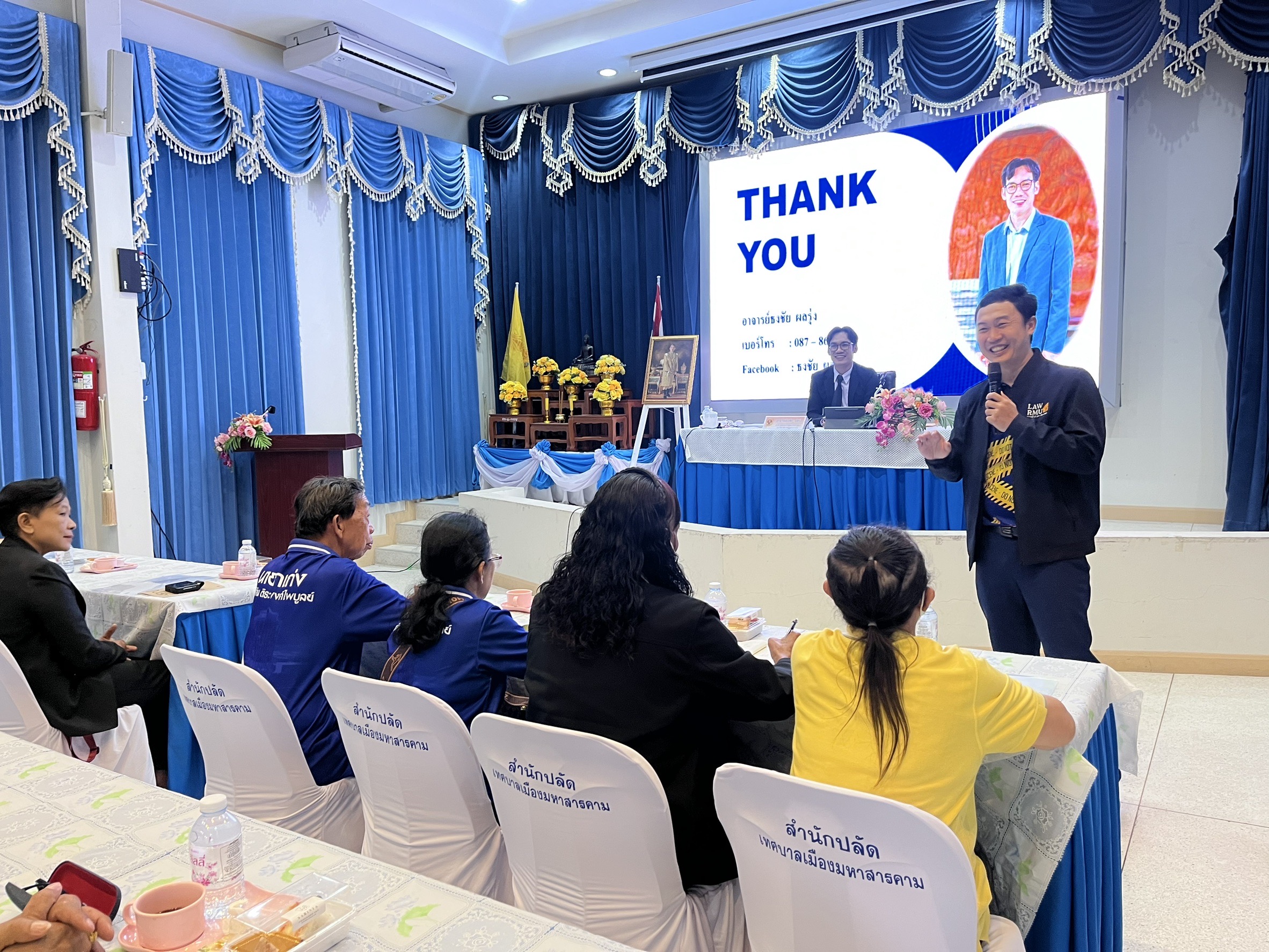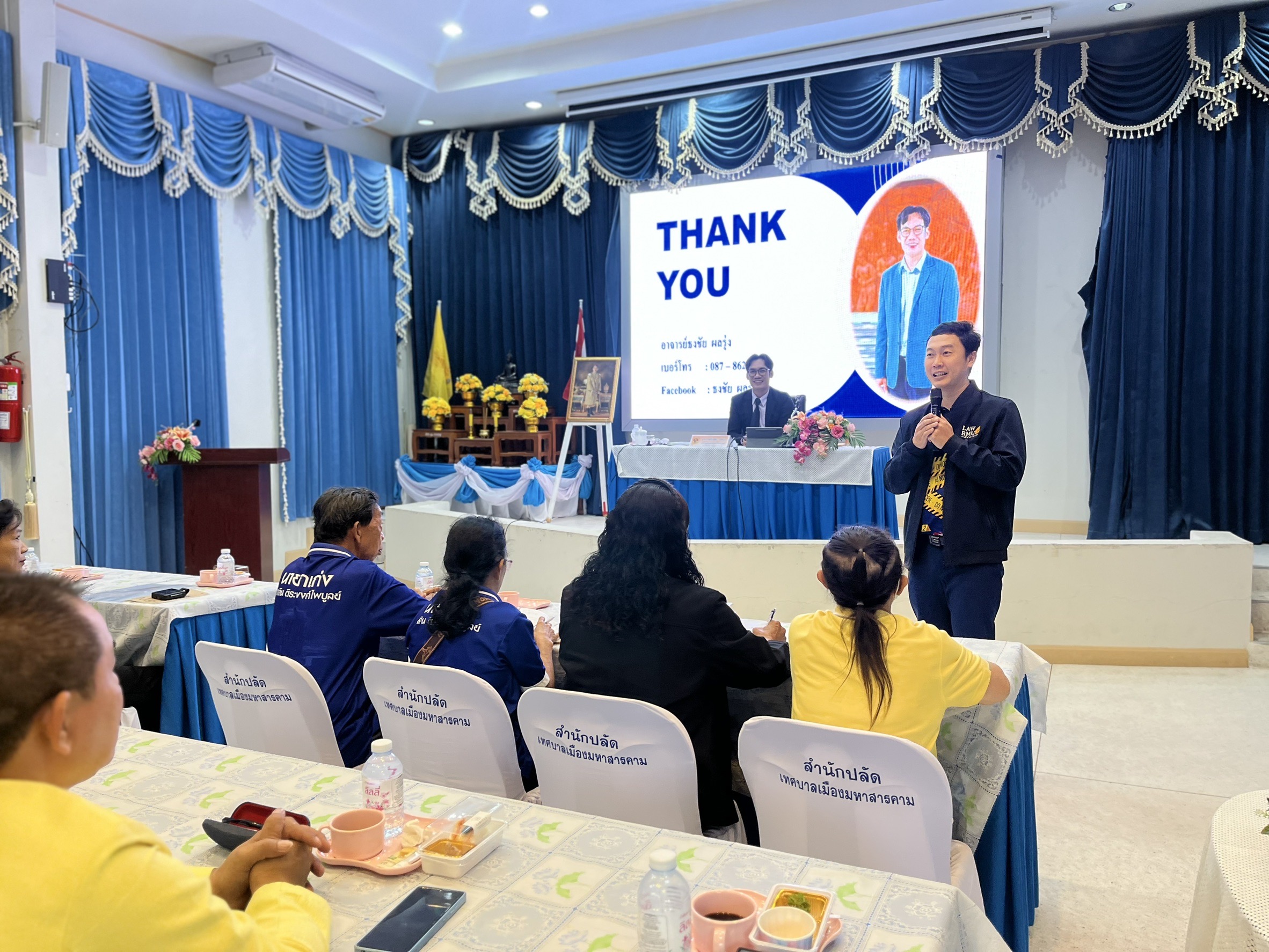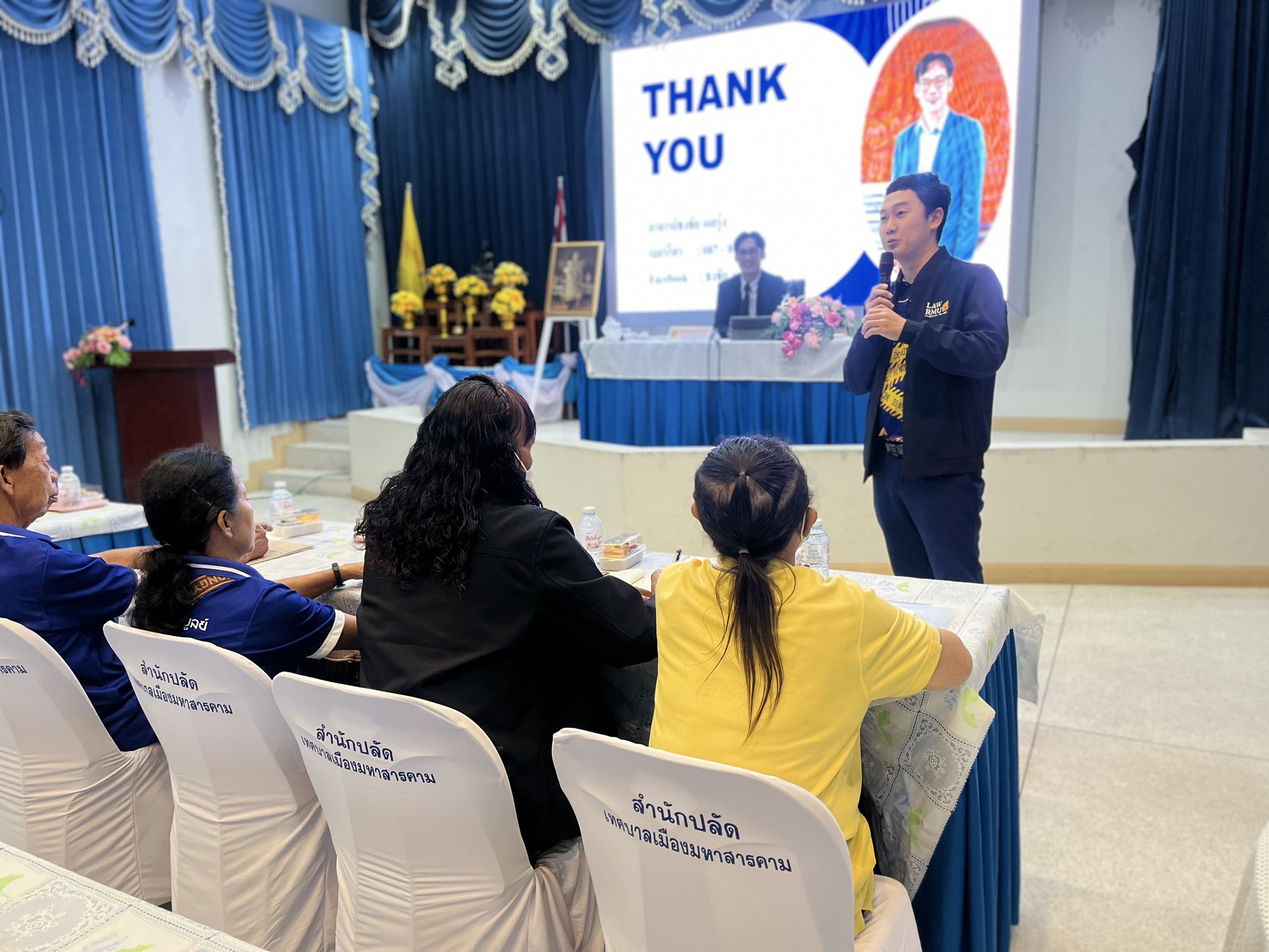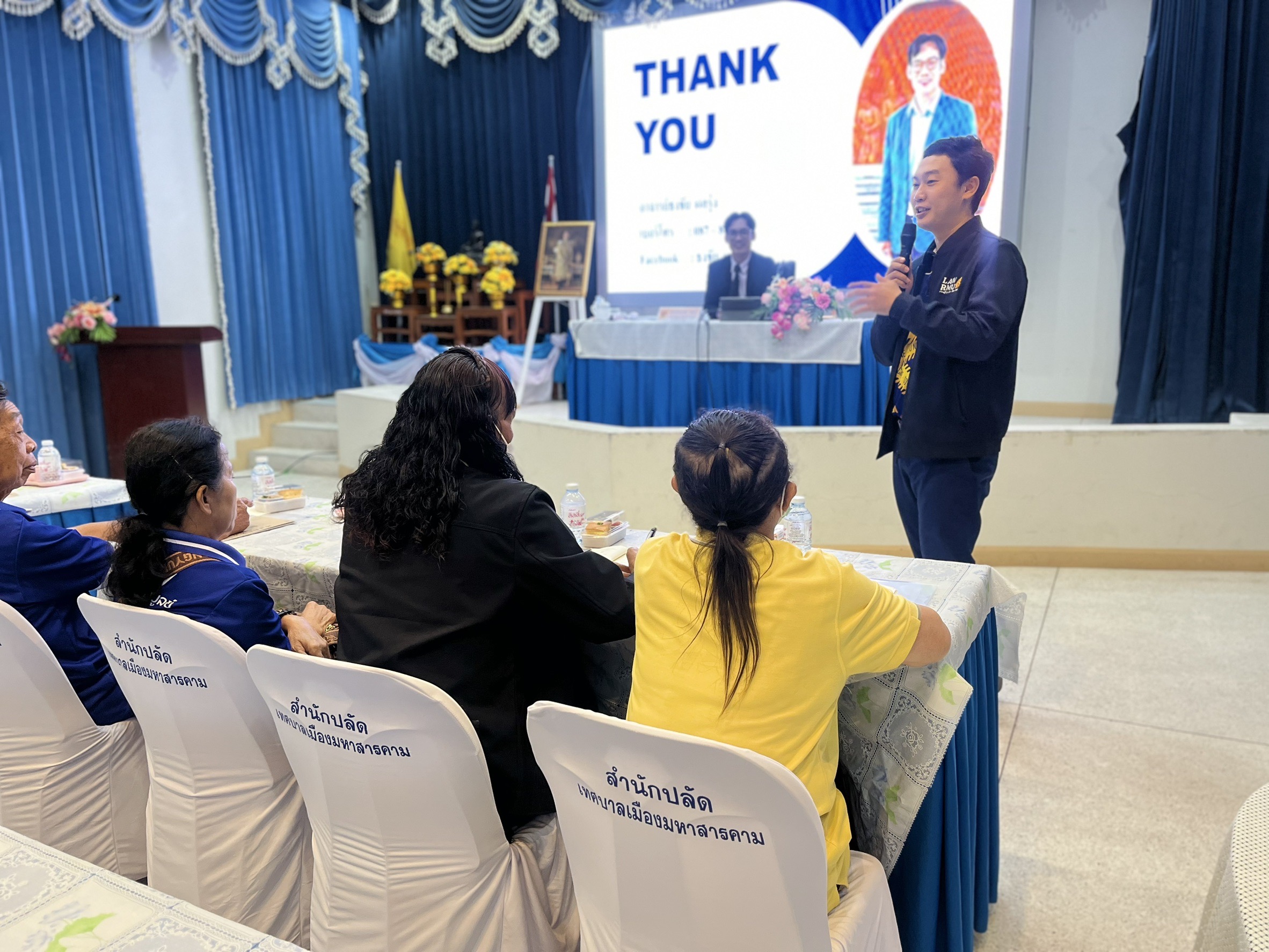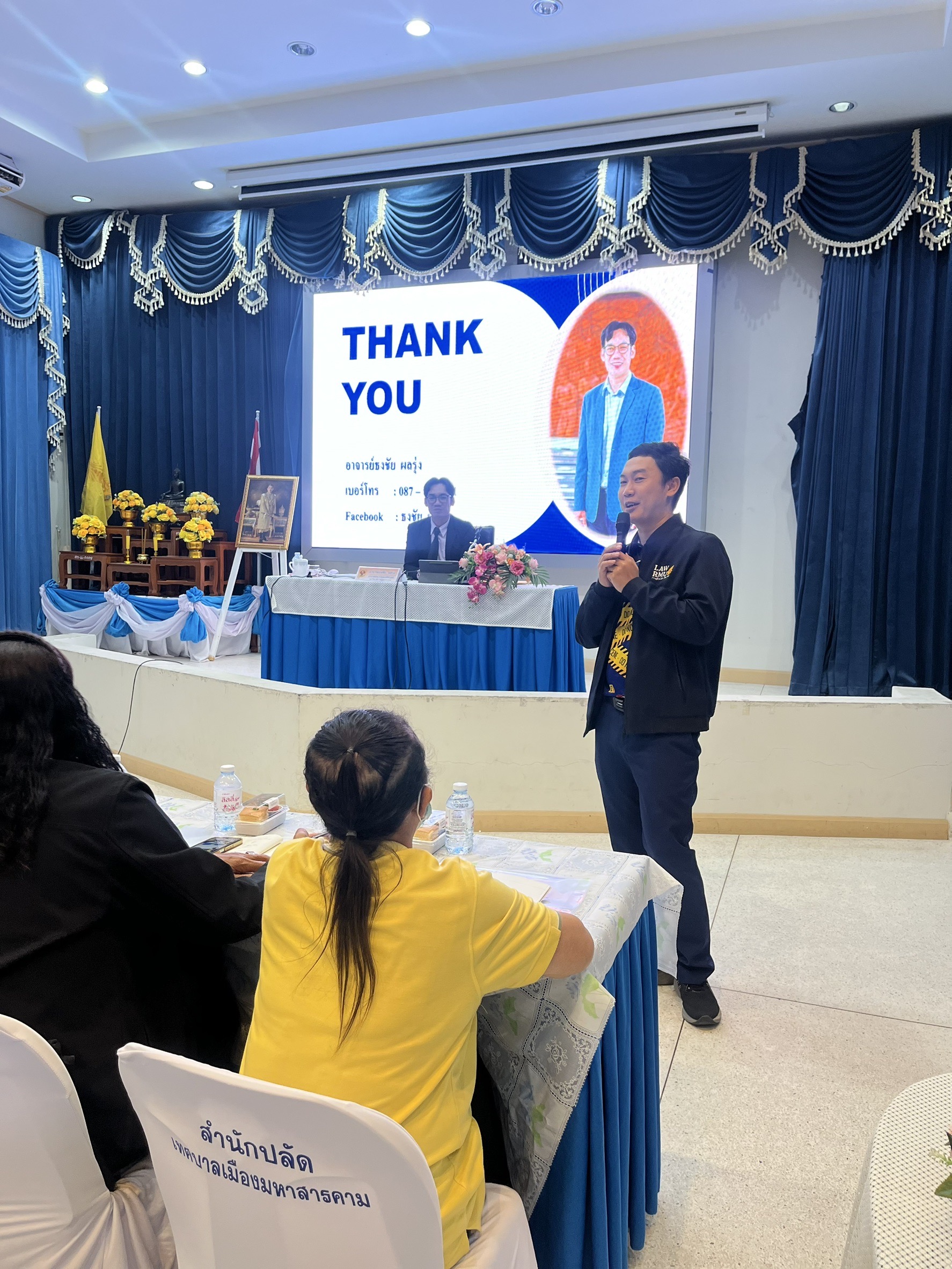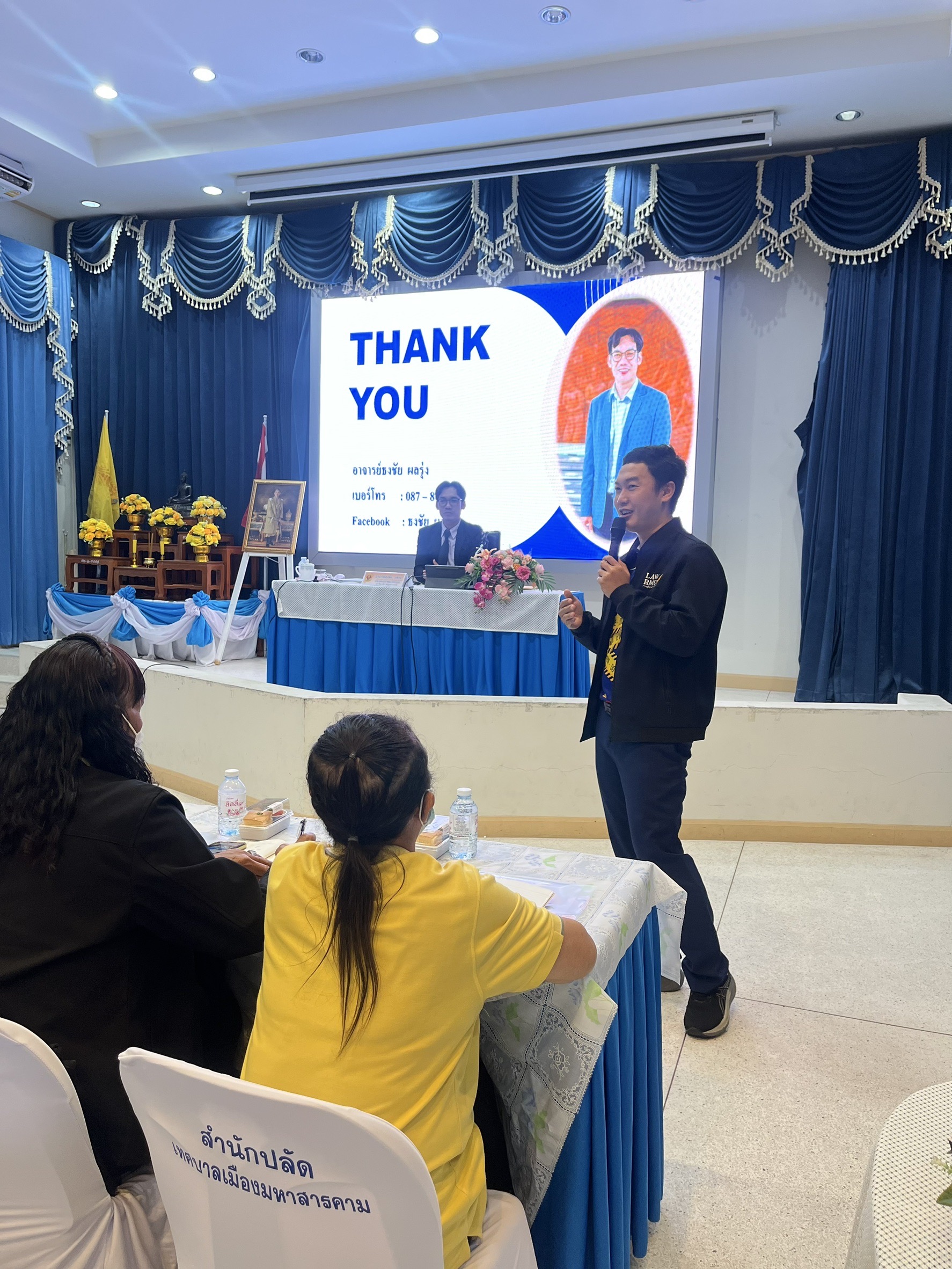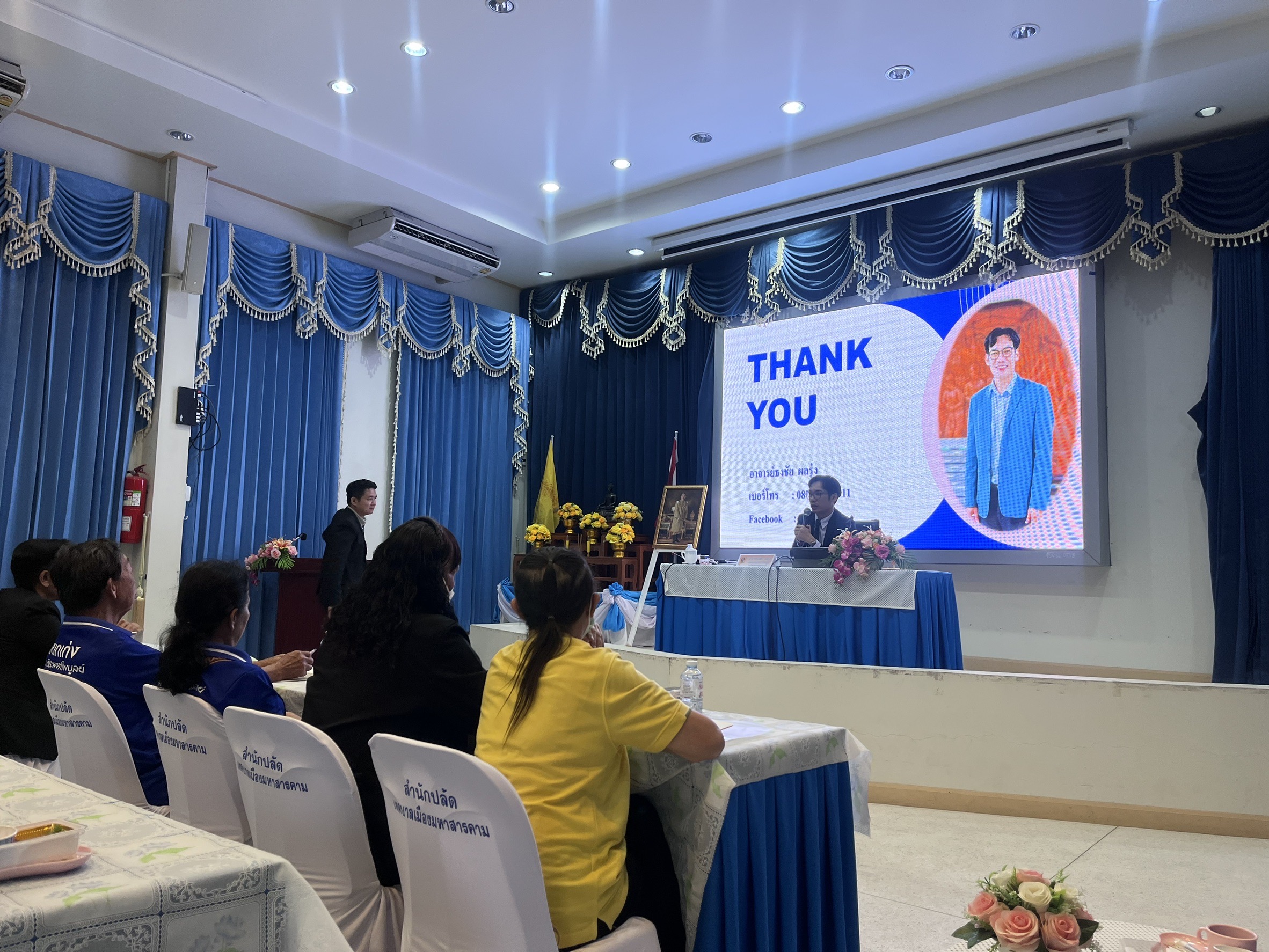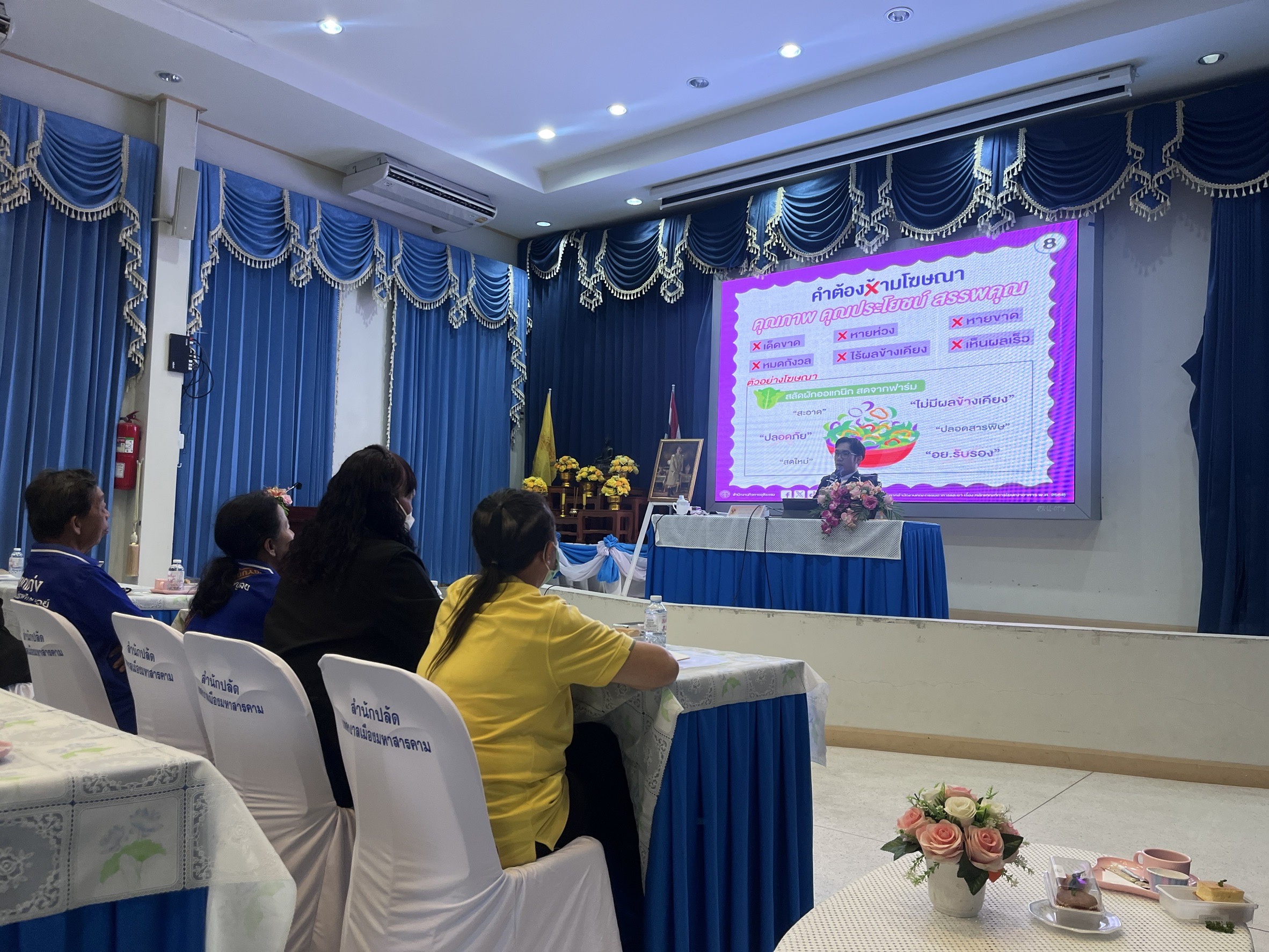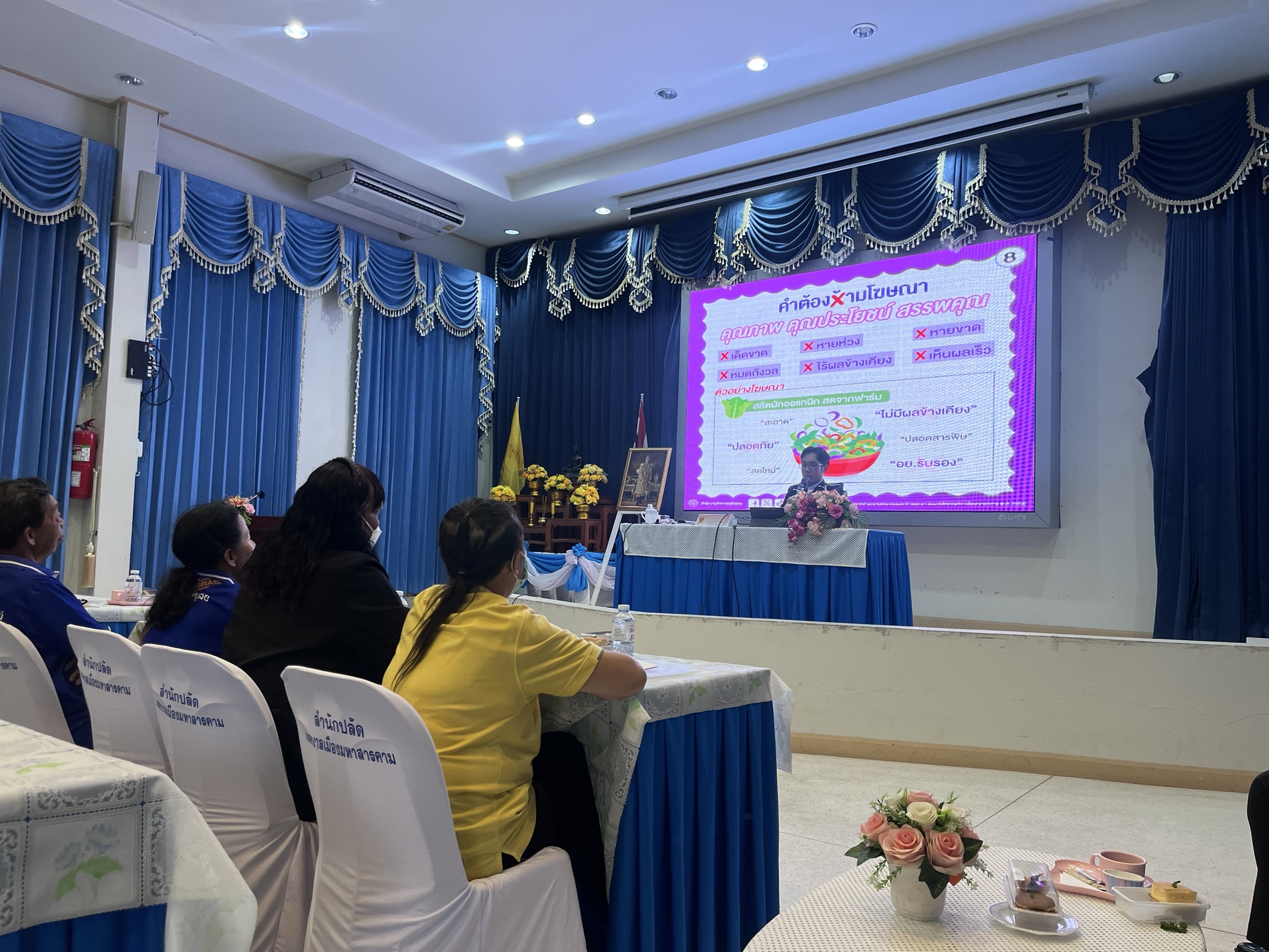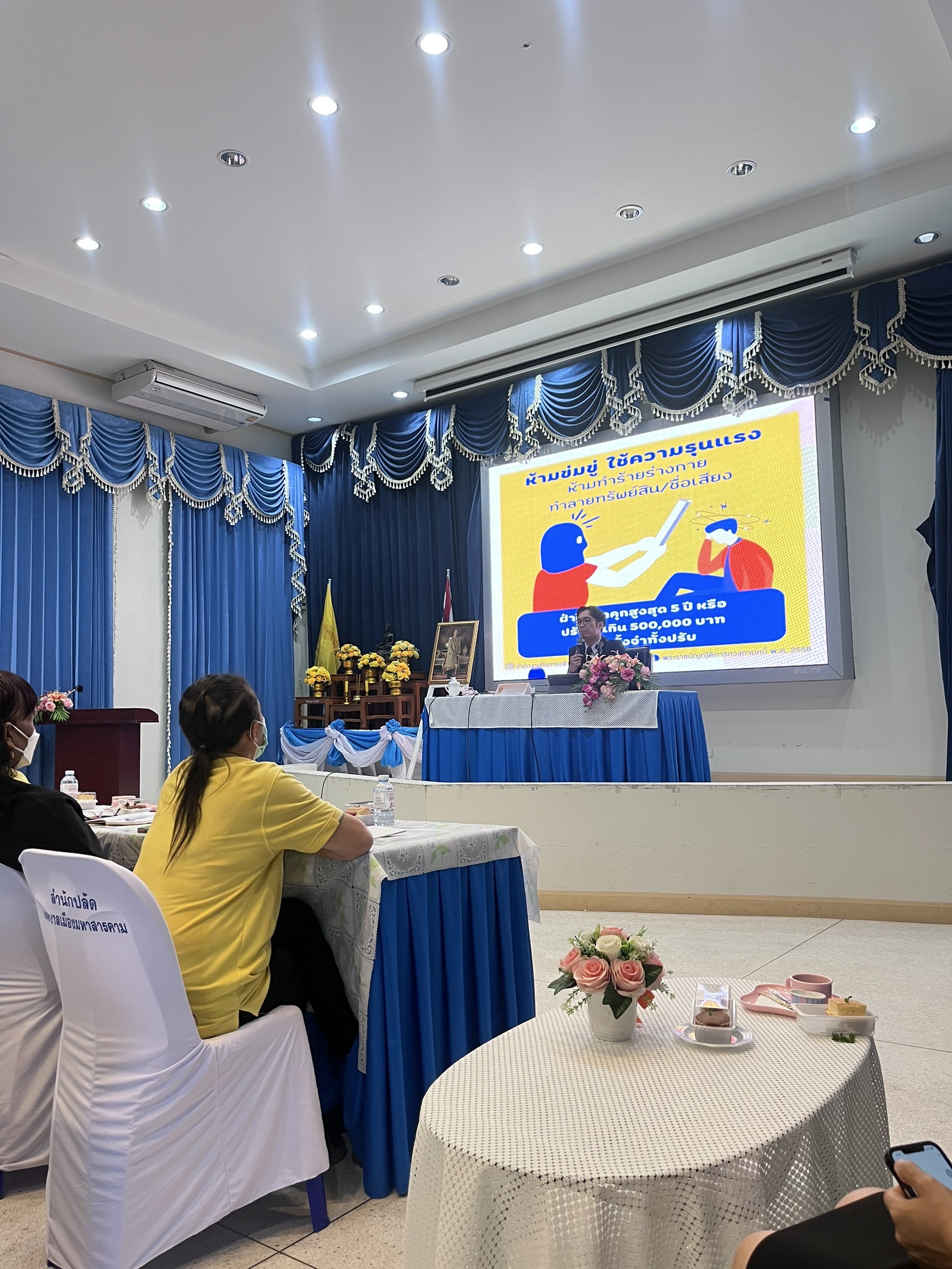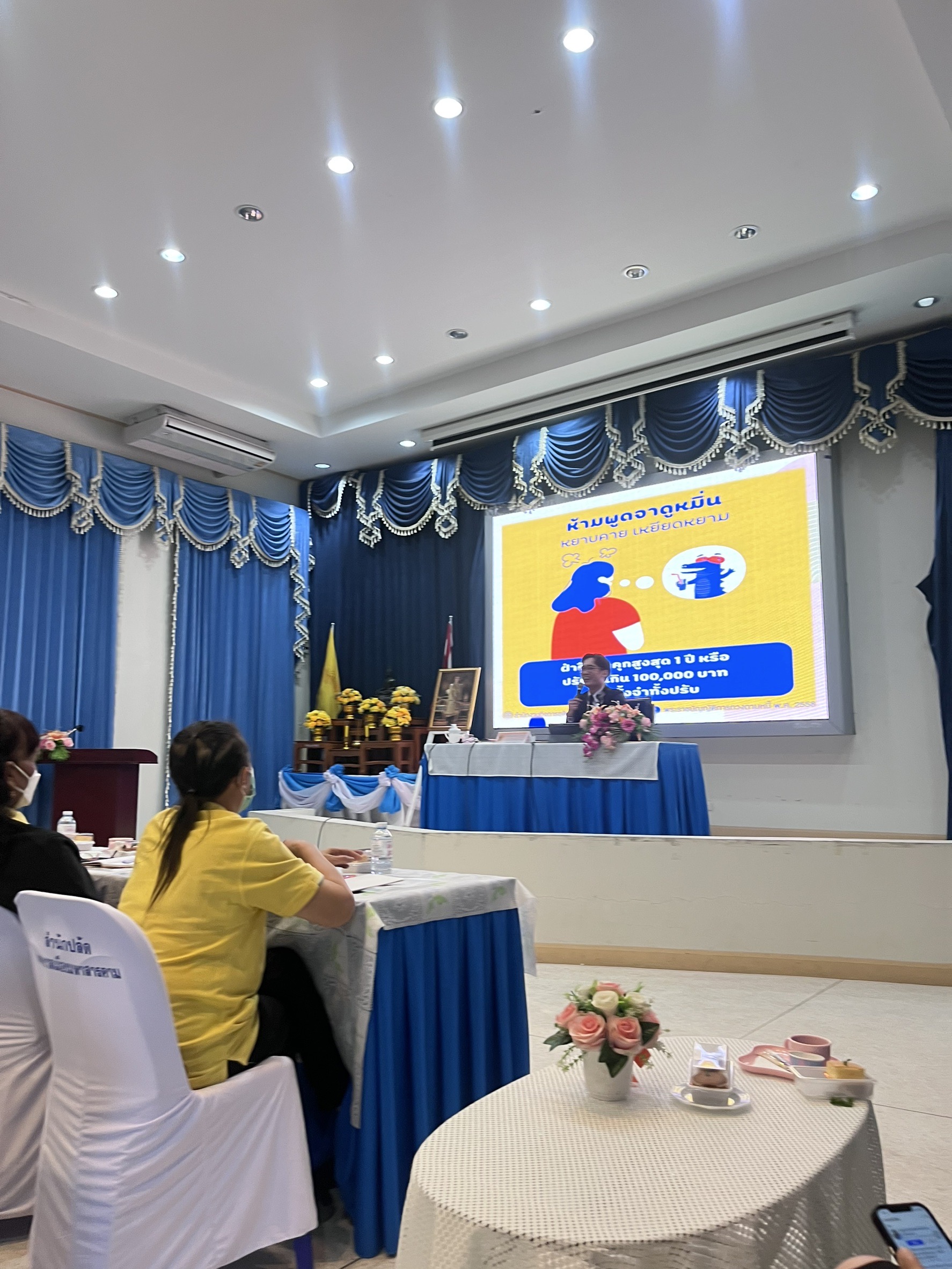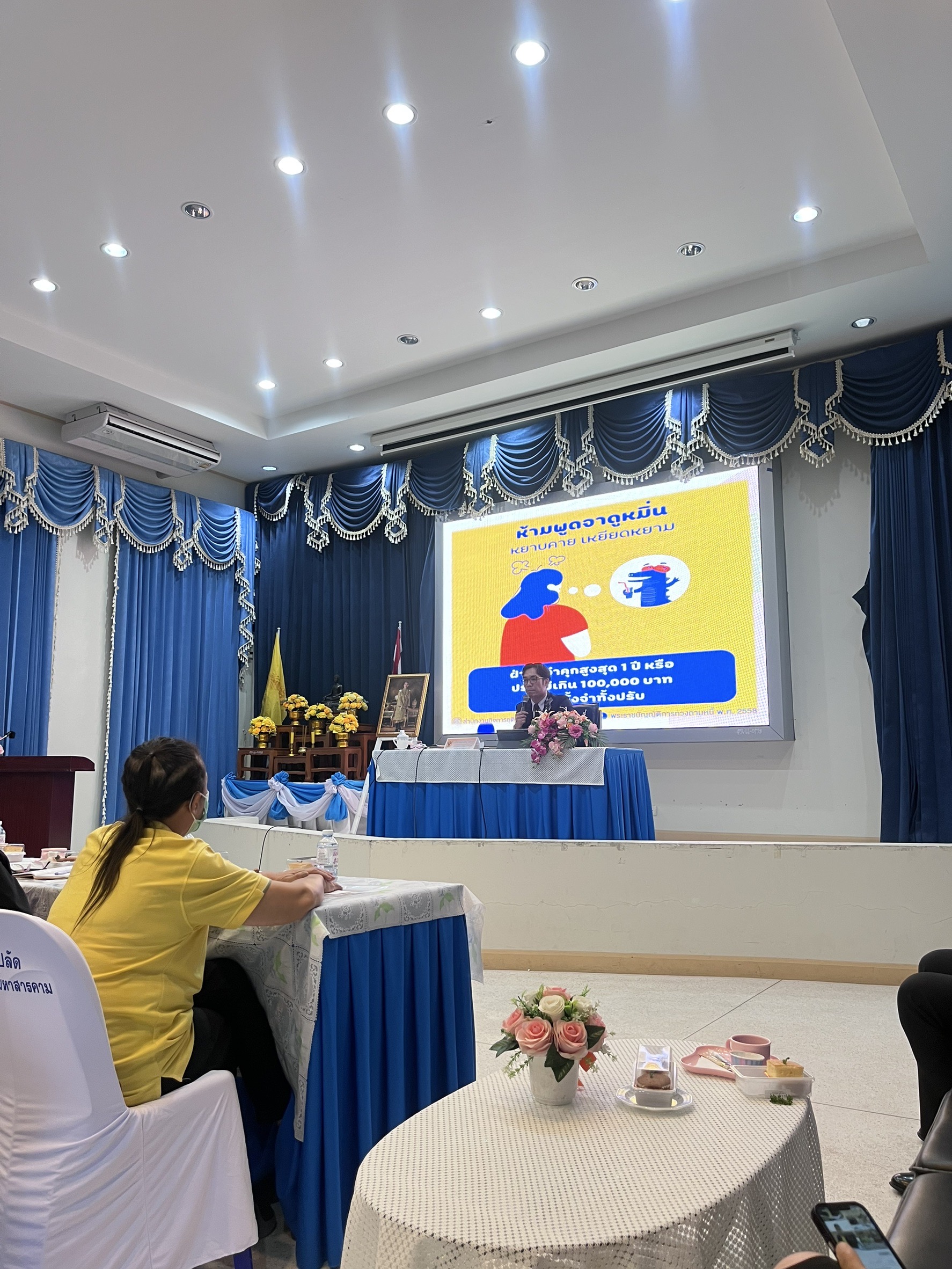
Establish a Law Center for Local Development
ผู้รับผิดชอบ ให้ข้อมูล : Dr. Krit Sinthusiri
SDG ที่เกี่ยวข้อง
เป้าหมายย่อยความสอดคล้องกับยุทธศาสตร์มหาวิทยาลัย : ยกระดับคุณภาพการศึกษาสู่ความเป็นเลิศ
แหล่งงบประมาณ : งบประมาณแผ่นดิน
กลุ่มเป้าหมาย : ชุมชน
Project Implementation Area : Srisawat ommunity, Muang Maha Sarakham ตำบล Talat อำเภอ Mueang Maha Sarakham จังหวัด Maha Sarakham 44000
Project Duration: August 4, 2025 – August 6, 2025
Objectives :
To develop students' transferring skills with the community for resource management and problem-solving within the community using legal knowledge.
To transfer knowledge to the community for resource management and problem-solving within the community using legal knowledge.
To establish a law center for local development.
Activities :
Activity 1: Techniques for knowledge transfer for resource management and problem-solving in the community using legal knowledge
- Survey of legal knowledge within the community
- Skill development for students
Activity 2: Transferring knowledge for resource management and problem-solving in the community using legal knowledge
- Transfer of knowledge and guidelines for solving legal problems in the community and the management of legal problems in the community
Activity 3: Seminar on legal problems in the community and opening of the Law Center for the community
- Seminar on legal problems in the community
- Opening of the Law Center for the Community
- Manual for managing legal problems
Number of project participants: 150 people
Project Budget: 100,000 Baht
Results :
1. Legal knowledge is generated at the community level, including the preparation of a manual for managing legal problems in the community as a guideline for the public to use the law to solve problems independently.
2. Students from the Faculty of Laws gain direct experience from working with lawyers, local organizations, and residents in the real area, leading to a concrete understanding of legal issues at the community level.
3. Lecturer competency is developed in integrating legal knowledge with the community context, which can be further applied in teaching and learning.
4. Cooperation between the university, the Provincial Lawyers Council, and the Maha Sarakham Municipality is established.
Results society :
Economic Aspect
- Reduce the financial burden on the public from hiring lawyers, as they can receive free legal consultation and services from the Law Center.
- Create a network of legal services at the community level, giving the public easier access to justice.
Social Aspect
- Promote a society of fairness and reduce legal inequality in the locality.
- Encourage the public to be aware of their rights, duties, and laws related to daily life, such as land, labor, family, and the environment.
- Enhance participation among the community, government sector, and academic sector in resolving legal issues.
Educational Aspect
- Law students have the opportunity to learn from real case studies in the area, which helps to develop their skills in legal analysis, counseling, and working with the community.
- The Law Center for the community becomes a "legal learning resource" used to organize activities integrated with the courses of the curriculum.
- Lecturers can use the community as a "real classroom" for active learning instruction.
Environmental Aspect
- The Law Center cooperates with local organizations to provide consultation and guidelines for managing environmental problems in the community, such as waste management, land use, and wastewater treatment.
- The public gains greater knowledge and understanding of environmental laws, reducing conflicts between the public and government.
Participation :
Students participated in all 3 main activities including 1. transfer of legal principles knowledge to the community 2. seminar and on-site survey of legal problems in the area 3. establishment and opening of the Law Center for the community. The collaboration among students, lecturers, and external agencies led to genuine participating learning.
Project continuity :
1. This project can be extended to become an annual activity of the Faculty of Laws to provide legal services to the public in Maha Sarakham Province.
2. The Law Center for the community has the potential to develop into a "Permanent Center" that continuously provides consultation and legal knowledge training to the community.
3. The project outcomes can be integrated into the Law curriculum courses such as Legal Clinic course and Law and Society course.
4. The network of cooperation can be expanded to other municipalities and neighboring provinces to create a regional network of law centers.
Problems obstacles :
1. The limited duration of the operation restricted the ability to fully conduct follow-up activities after the service was delivered.
2. The budget was limited for developing equipment and media for promoting the Law Center.
3. Some groups of the public still did not understand the role of the Law Center, resulting in non-comprehensive participation in activities.
4. Coordination with external organizations was delayed due to official governmental procedures.
Improvement :
1. Develop a Follow-up Program to evaluate the utilization and impact of the legal consultations.
2. Develop promotional media and an online database system for the Law Center to provide the easy access system.
3. Coordinate cooperation with the Lawyers Council and local administrative organizations to expand the network of Law Centers in more areas.
4. Consider requesting additional funding from external organization, such as the Justice Fund, the Ministry of Justice, or the private sectors.
Suggestions :
1. Support the establishment of the Law Center for the Community as a permanent unit of the Faculty of Laws, in order to be a sustainable social service mechanism.
2. Promote this project as a model for integrating "Service Learning" into the Laws curriculum.
3. Provide additional budget and personnel, so that the Center can operate activities continuously throughout the year.
4. Clearly integrate this project into the Rajabhat University Strategy for Local Development (Local Development Mission).
